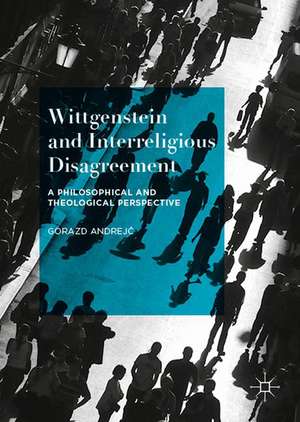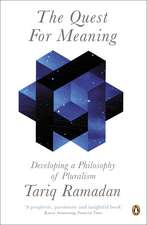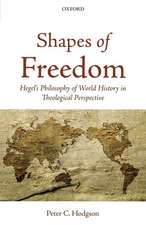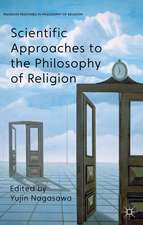Wittgenstein and Interreligious Disagreement: A Philosophical and Theological Perspective
Autor Gorazd Andrejčen Limba Engleză Hardback – 5 aug 2016
Preț: 390.63 lei
Nou
Puncte Express: 586
Preț estimativ în valută:
74.75€ • 81.45$ • 62.99£
74.75€ • 81.45$ • 62.99£
Carte tipărită la comandă
Livrare economică 23 aprilie-07 mai
Preluare comenzi: 021 569.72.76
Specificații
ISBN-13: 9781137503077
ISBN-10: 1137503076
Pagini: 276
Ilustrații: XII, 280 p.
Dimensiuni: 148 x 210 x 22 mm
Greutate: 0.48 kg
Ediția:1st ed. 2016
Editura: Palgrave Macmillan US
Colecția Palgrave Macmillan
Locul publicării:New York, United States
ISBN-10: 1137503076
Pagini: 276
Ilustrații: XII, 280 p.
Dimensiuni: 148 x 210 x 22 mm
Greutate: 0.48 kg
Ediția:1st ed. 2016
Editura: Palgrave Macmillan US
Colecția Palgrave Macmillan
Locul publicării:New York, United States
Cuprins
Introduction.- 1. Wittgenstein on Religion: The Four Conceptions.- 2. George Lindbeck, Wittgenstein and Grammar of Interreligious Disagreement.- 3. Incommensurability and Interreligious Communication.- 4. David Tracy, Experience, and ‘Similarities-in-Difference’.- 5. A Wittgensteinian Approach to Interreligious Disagreements: Descriptive and Normative Investigations.- Bibliography.
Notă biografică
Gorazd Andrejč is Junior Research Fellow at The Woolf Institute, Cambridge, and Research Associate at St. Edmund’s College, University of Cambridge, UK.
Textul de pe ultima copertă
This book critically examines three distinct interpretations of Ludwig Wittgenstein, those of George Lindbeck, David Tracy, and David Burrell, while paying special attention to the topic of interreligious disagreement. In theological and philosophical work on interreligious communication, Ludwig Wittgenstein has been interpreted in very different, sometimes contradicting ways. This is partly due to the nature of Wittgenstein’s philosophy, which is not composed of a theory but several, varying conceptions of religion. In this volume, Gorazd Andrejč illustrates how assorted uptakes of Wittgenstein’s conceptions of religion, and the differing theological perspectives of the authors who formulated them, shape interpretations of interreligious disagreement and dialogue. Inspired by selected perspectives from Tillichian philosophical theology, this book suggests a new way of engaging both descriptive and normative aspects of Wittgenstein’s conceptions of religion in the interpretationof interreligious disagreement.















